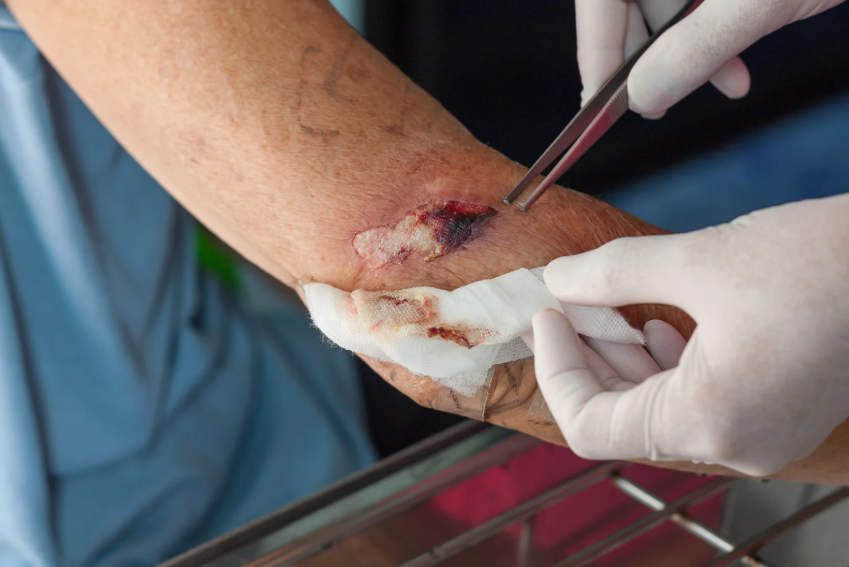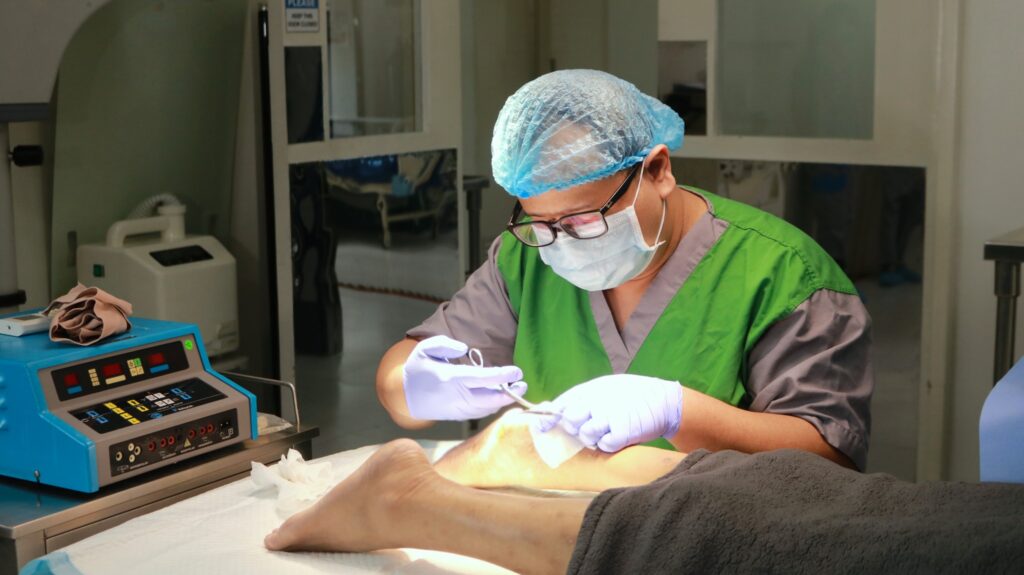Bedridden patients face unique health challenges, and one of the most serious concerns is the development of bedsores, also known as pressure ulcers. These wounds occur when prolonged pressure cuts off circulation to the skin and underlying tissue. Without proper attention, they can quickly progress from mild skin irritation to severe infections that compromise a patient’s health. This is where the expertise of a Bedsore Specialist becomes essential. By providing advanced care, tailored prevention strategies, and continuous monitoring, a Bedsore Specialist plays a vital role in protecting bedridden patients from life-threatening complications.
Understanding Bedsores and Their Risks
Bedsores are caused primarily by constant pressure, friction, and poor circulation. Bedridden patients are particularly vulnerable because they remain in one position for extended periods. Pressure ulcers are categorized into stages, ranging from mild redness to deep wounds exposing bone and tissue. If not addressed promptly, these wounds can lead to severe complications such as infections, sepsis, and delayed healing. For many patients, untreated bedsores can drastically reduce quality of life and increase hospital stays. A Bedsore Specialist helps identify these risks early and ensures proper management to prevent worsening conditions.
Role of a Bedsore Specialist in Prevention
Prevention is always better than cure when it comes to bedsores. A Bedsore Specialist conducts thorough assessments to determine a patient’s risk level and creates personalized care plans. These plans may include regular skin checks, repositioning schedules, and the use of specialized cushions or mattresses to relieve pressure points. For bedridden patients, this proactive approach significantly reduces the chances of developing pressure ulcers. By working closely with caregivers, a Bedsore Specialist also provides education and training, ensuring proper bedside care that minimizes risks of skin breakdown.
Advanced Treatment Methods Used by Bedsore Specialists
When bedsores do occur, early and advanced treatment is critical to avoid complications. A Bedsore Specialist employs evidence-based methods such as proper wound cleaning, application of advanced dressings, and negative pressure wound therapy to promote faster healing. In some cases, therapies like oxygen treatment or biologically active dressings may also be recommended. Nutrition plays a major role in recovery, and a Bedsore Specialist can guide patients and families on dietary changes that support wound healing. With these advanced methods, the risk of infection and prolonged suffering is minimized.
Comfort and Quality of Life for Bedridden Patients
Beyond wound treatment, a Bedsore Specialist focuses on improving patient comfort and overall quality of life. Pain management is often necessary since pressure ulcers can cause significant discomfort. Specialists also recommend repositioning techniques and pressure-relieving equipment that not only prevent further wounds but also enhance comfort during long periods of immobility. Caregivers benefit greatly from the guidance of a Bedsore Specialist, learning effective techniques to care for their loved ones while reducing stress and uncertainty.
Long-Term Benefits of Consulting a Bedsore Specialist
The support of a Bedsore Specialist goes beyond immediate treatment. By preventing severe wounds, patients experience fewer hospital visits, lower medical costs, and faster recovery times. Caregivers gain peace of mind knowing they have professional guidance to manage daily care effectively. Most importantly, bedridden patients enjoy better health outcomes and improved well-being. Consulting a Bedsore Specialist is not only a medical necessity but also an investment in long-term quality of life.
When to Seek Immediate Help from a Bedsore Specialist
There are critical signs that indicate the need for urgent consultation with a Bedsore Specialist. These include visible signs of infection such as swelling, redness, foul odor, pus, or fever. If wounds are not healing despite basic care, or if new sores continue to appear, professional intervention becomes necessary. A Bedsore Specialist can prevent complications from escalating and ensure the patient receives the most effective treatments before conditions worsen.
Why Choose Kalingap Wound Care Clinic
For patients and families searching for expert care, Kalingap Wound Care Clinic is the best company to engage. Their team of highly trained Bedsore Specialists provides comprehensive assessment, prevention strategies, and advanced treatment options tailored to bedridden patients. With a focus on compassion, innovation, and long-term results, Kalingap Wound Care Clinic ensures that patients receive the highest level of care while caregivers are supported every step of the way.
Takeaway
A Bedsore Specialist plays a crucial role in helping bedridden patients avoid complications from pressure ulcers. Through prevention, advanced treatments, and a strong focus on patient comfort, specialists ensure better outcomes and reduced health risks. Families who partner with experts at Kalingap Wound Care Clinic gain the assurance that their loved ones are receiving the best possible care to prevent and manage bedsores effectively.
Frequently Asked Questions
What is the best way to prevent bedsores in bedridden patients?
Regular repositioning, skin checks, use of pressure-relieving equipment, and guidance from a Bedsore Specialist are the most effective preventive measures.
How can a Bedsore Specialist help with severe wounds?
A Bedsore Specialist uses advanced therapies such as negative pressure wound therapy, specialized dressings, and nutritional support to promote healing and reduce complications.
Do all bedridden patients need to see a Bedsore Specialist?
Not every patient will develop bedsores, but consulting a Bedsore Specialist is highly recommended for prevention, especially for long-term bedridden individuals.
What happens if bedsores are left untreated?
Untreated bedsores can progress to severe infections, tissue death, sepsis, and even life-threatening complications. Early intervention from a Bedsore Specialist is essential.





